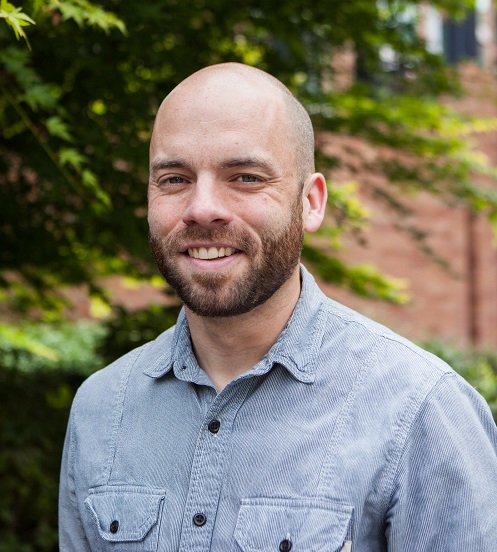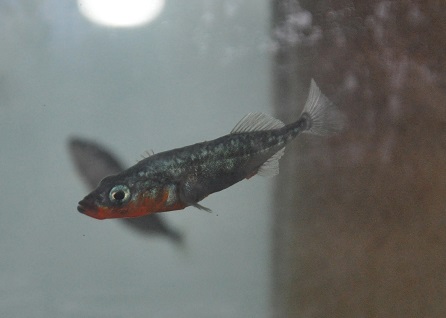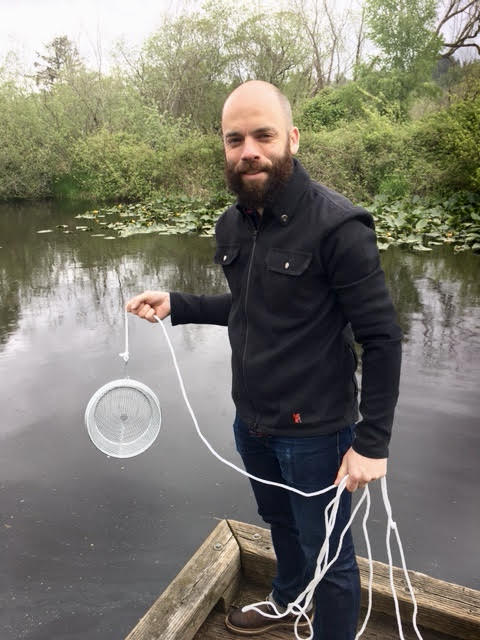
Dr. Michael White
Assistant Professor
Department of Genetics
University of Georgia
http://www.genetics.uga.edu/directory/michael-white
Start date: August 2015
Ph.D: Department of Genetics, University of Wisconsin, Madison; advisor: Dr. Bret Payseur
Postdoc: Divisions of Human Biology and Basic Sciences, Fred Hutchinson Cancer Research Center, Seattle, WA; advisor: Dr. Katie Peichel
About the department:
I am an Assistant Professor in the Genetics Department at the University of Georgia, located in beautiful Athens, Georgia. Our department is a highly collaborative environment, with a strong mix of both molecular and evolutionary genetics research. As a new professor, our department has been especially welcoming. We have a large group of junior faculty who have been instrumental in helping me navigate the early days as a new professor.
About the research program:
Research in my lab primarily focuses on the evolution of sex chromosomes. We use the threespine stickleback fish as a model system to understand the evolution of young XY sex chromosomes. One key step in evolving new sex chromosomes is the loss of recombination between the homologs. Within a single Y chromosome, recombination rates vary tremendously. In some regions, rates are several fold higher than genome-wide averages, whereas elsewhere along the chromosome, recombination is completely suppressed. I am interested in the evolutionary consequences of the loss of recombination on sex chromosomes as well as the mechanisms that can cause such varied rates in recombination.
What has been the biggest challenge as a new PI so far?
Some of my biggest challenges as a new PI have involved tasks not directly related to research. Interpreting and managing lab budgets, ordering supplies, requesting repair work, and hiring new employees all have had a higher learning curve than I was anticipating. I have been surprised how much time these tasks can actually consume.
How do you/will you approach mentoring new lab members?
Every new member in my lab so far has required a different mentoring style. After I discovered this, I realized my general approach to mentoring new members is to start with a clean slate. Then I spend the first month or two figuring out the best way to mentor that particular member to help their projects move along as efficiently as possible.
Are you recruiting? If so, how do you/ will you choose new lab members?
I am recruiting new lab members. I recruit graduate students through the Integrated Life Sciences graduate program here at UGA. The program allows students to choose three rotation labs from faculty in over a dozen departments and institutes. The rotation system has been useful for me as a new PI to see if students are a good fit for my lab.
When and why did you become a SSE member?
I became an SSE member immediately after I began my Ph.D. and I attended my first Evolution Meeting in Minneapolis, MN in 2008. This was the first society I had been a member of that had a primary focus on evolution research. As a student, I was drawn to this society because of the opportunity to give a talk as an early graduate student. I found these early presentations incredibly useful in learning how to communicate research clearly.
Do you teach evolution? What is the hardest concept to teach?
I teach evolution at an undergraduate level in a section of introductory biology as well at a graduate level in a genetics course. Both classes share similar challenging concepts. For one, students have a hard time interpreting phylogenies. I spend a lot of time teaching students how to interpret phylogenetic trees, rather than focusing on the nitty-gritty details of constructing phylogenies. I also find genetic drift to be a difficult concept for students. I think randomness in evolution is a foreign idea for many students.
What one piece of advice would you give to a starting graduate student?
If I had to give one piece of advice, I would tell graduate students that in addition to the research, I think it is important to spend time cultivating a good group of friends outside of the lab. A Ph.D. is a long haul and that support network is essential in getting you through your program.
Do you remember making any mistakes as a trainee; how did you recover?
I made lots of mistakes as a trainee. This is expected as a trainee! I think the key to making mistakes is learning from them and taking responsibility by reporting your mistakes. I believe many of my mistakes over the years have in some way stemmed from errors in organizing. This is a skill I am still refining.
What do you enjoy doing in your free time?
Lately I have been spending free time working outside in our garden. I have discovered that weeding is very relaxing! In my free time I try to stick to activities that do not require a tremendous amount of thinking.


